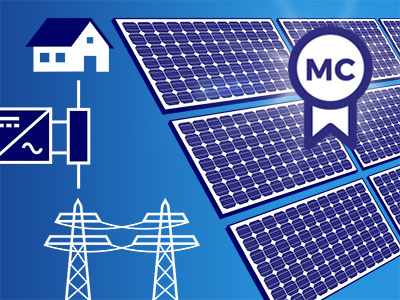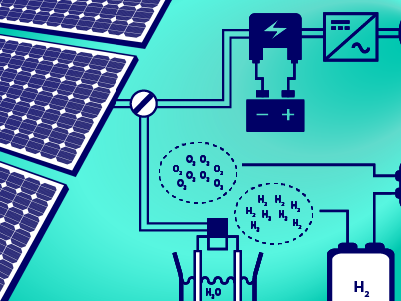Overview
Note: This course can be started at any time from 4 September 2024 until 8 December 2024, and it will be closed for all participants on 18 December 2024. Please note that all assignments should be submitted before the end date in order to obtain the certificate.
By mastering tools and methods you will learn to predict performance and yield of photovoltaic systems to the highest degree of accuracy provided by science to date.
The coming years will see PV installations established on every possible surface and terrain. Modeling will be key for the realization of this significant future development. To better estimate the yield of PV systems and their optimum deployment, engineers need to accurately determine input parameters and have a better understanding of the models underlying the performance and yield calculations.
This course will help you to broaden your PV systems modeling proficiency. By mastering tools and methods that will be introduced during the course, you will learn to predict performance and yield of photovoltaic systems to the highest degree of accuracy provided by science to date. With these new skills and knowledge, you will be able to better understand design rules, optimize existing and planned installations and refine and improve PV systems designs. This course will specifically benefit engineers working in the design and installation of photovoltaic systems.
In the course, you will watch video lectures, complete modeling exercises and use basic MATLAB code cloud to simulate system performance (no prior experience with MATLAB is required). To further manipulate and investigate cause-effect relationships, other exercises will be provided.
By the end of this course, you will be able to:
- Manipulate cause-effect relationships between inputs data (meteorological conditions, module properties, etc.) and output performance
- Optimize PV systems design to maximize electricity yield
- Tailor the design of PV systems to location constraints and required performance or yield.
This course is part of the PV Modeling, Simulation and Analysis program, which offers future and practicing PV engineers the opportunity to enhance their use of tools and methods to accurately characterize and model the performance and yield of photovoltaic materials, solar cells, modules and systems.
Package price - the full professional certificate program consisting of two courses: € 650 (saving € 140). Read more.
About the PVMD group at TU Delft
The Photovoltaic Materials and Devices (PVMD) group has more than 5 years' experience in the field of PV systems modeling. The group has earned its academic reputation through the significant number of publications on the topic, authored by all instructors of this online course. The group has been in direct contact with leading firms in the solar energy sector all over the world and continuously contributes to further advancement in the field.
Details
The course is divided into 2 parts, each focusing on a particular aspect of systems modeling and yield calculation.
Part 1 – Estimation of the solar potential
- Modeling of module characteristics
- Determination of location issues (shading)
- Handling of meteorological data
- Modeling of daily and seasonal irradiance variations
Part 2 – Calculation of the Energy Yield
- Module temperature study
- DC-yield calculations
- DC to AC conversion
- Batteries and other storage modeling
- AC yield and LCOE calculations
Assignments and exercises
Participants will have the opportunity to learn how various meteorological, module and other properties (inputs) can be manipulated to change and improve PV systems, through the analysis of cases presented. Simulations utilized throughout the course will help to improve or tailor the design of systems to location, power production and other requirements. Specifically you will:
- Work with different inputs and outputs on cases provided, to assess results
- Understand which inputs (properties) to change in order to maximize the performance of systems
- Practice improving or tailoring design of systems to particular requirements
Qualifications
Certificates
If you successfully complete this course you will earn a professional education certificate and you are eligible to receive 2.4 Continuing Education Units (CEUs).
Admission
Comprehensive modeling will be used to achieve an accurate energy yield prediction of PV systems, therefore basic knowledge of how PV systems work is required to follow this course.
If you seek a refresher course that will help you prepare for this course, you may want to review the content of the free online course offered by TU Delft:
Contact
If you have any questions about this course or the TU Delft online learning environment, please visit our Help & Support page.





